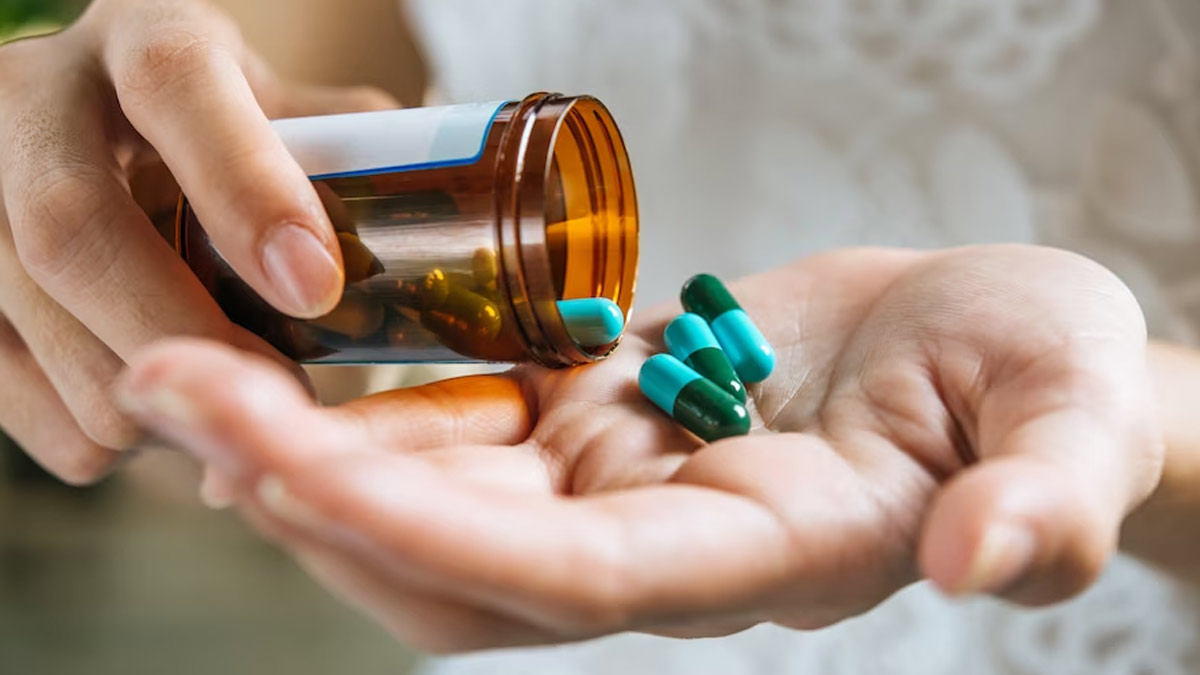
When people use medicines to treat self-diagnosed conditions or symptoms, they are said to self-medicate. Although it saves a trip to the doctor, self-medication is far from being a completely safe practice. Self-medication is risky and may lead to incorrect self-diagnosis. We spoke to Dr Pankaj Singhai, Consultant, Internal Medicine, Manipal Hospital, Old Airport Road, Bengaluru, who explained the dangers of self-medication.
Table of Content:-
Risks Of Self-Medication

Incorrect Self-Diagnosis and Delayed Medical Advice
Dr Singhai said, “Self-medication can lead to incorrect self-diagnosis, as individuals might not have the necessary expertise to accurately identify their condition. This can result in delays in seeking proper medical advice, potentially allowing the condition to worsen.”
Adverse Reactions and Dangerous Drug Interactions
Dr Singhai informed, “In some cases, self-medication can lead to severe adverse reactions that individuals may not be prepared for. Additionally, if a person is already taking certain medications, self-medication can lead to dangerous drug interactions that could be harmful to their health.”

Incorrect Dosage and Administration
Administering medication without proper guidance can result in incorrect dosages or improper methods of administration. This can lead to ineffective treatment or even worsen the condition.
Also Read: Menstrual Hygiene Day: Why Is It Harmful To Take Medicines For Period Pain?
Masking Severe Diseases
Dr Singhai added, “Self-medication might lead to the incorrect choice of therapy, which could mask the symptoms of a more serious underlying disease. Relying on self-medication might delay the proper diagnosis and treatment of such conditions.”

Risk of Addiction and Reliance
Dr Singhai said, “Starting with mild self-medication practices, individuals might progress to using harder substances or regular medications without consulting a doctor. This can lead to addiction or reliance on the substance, with potentially harmful consequences.”
The Importance of Professional Guidance

Consulting Healthcare Experts
Before initiating any form of self-medication, it's crucial to consult a healthcare professional. They can provide personalised guidance on the suitability of a particular drug for an individual's needs.
Avoiding Self-Diagnosis
Dr Singhai said, “Engaging with a healthcare provider is essential to avoid self-diagnosis. Many individuals attempt to alleviate their symptoms through self-medication without seeking proper consultation, which can lead to improper treatment.”
Also Read: Antibiotic Misuse: When Should You NOT Take Them And Why?

The Case of Antibiotics
Antibiotics are a prime example of the risks of self-medication. While they are effective in treating bacterial infections, their misuse can lead to bacterial resistance. Consulting a doctor before taking antibiotics is essential to ensure proper and responsible use.
According to the World Health Organization (WHO) guideline, to utilise an over-the-counter product safely and efficiently, the consumer must undertake various tasks typically undertaken by a doctor when treating a patient with a prescribed medication. These tasks encompass precise identification of symptoms, the establishment of therapeutic goals, product selection, and calculation of optimal dosage and timing. Additionally, monitoring the treatment's response and potential adverse reactions is essential.
Ensuring Effective Treatment
Misusing antibiotics can reduce their effectiveness and increase the chances of medical complications arising from bacterial and microbial resistance. Responsible medication usage requires professional oversight.
Disclaimer
The information in this article is shared by a registered healthcare professional and is for informational purposes only. Hence, we advise you to consult with your healthcare expert for treatment and medication tailored to your needs.
Also watch this video
How we keep this article up to date:
We work with experts and keep a close eye on the latest in health and wellness. Whenever there is a new research or helpful information, we update our articles with accurate and useful advice.
Current Version